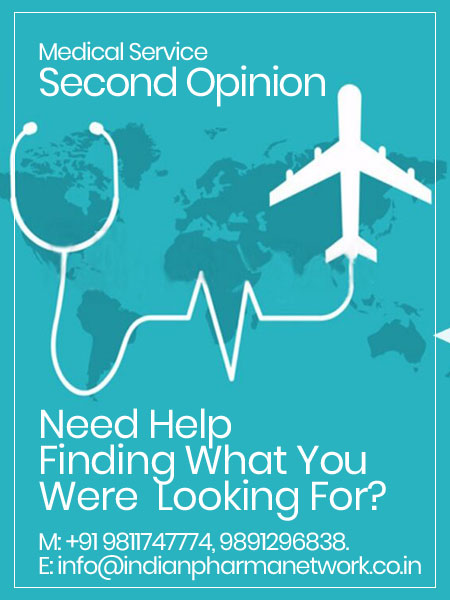The Novel Coronavirus COVID-19 has spread globally and has affected a million lives all over the globe. Due to the deadly virus, public authorities around the whole world implemented various measures to contain it, from major lockdown to banning of all the economic activities to banning of large public gatherings and much more. The COVID-19 Pandemic has imposed a huge risk among health care providers of getting exposed to the deadly infection and further transmission to their closed ones. Hence, there is a lack of any specific safety protocol specially designed during the pre-and post-exposure period for Healthcare professionals, who provide direct clinical care to patients suffering from COVID-19.
The COVID-19 Pandemic has imposed a huge risk among health care providers about getting exposed to the deadly infection and further transmission to their closed ones. Hence, there is a lack of any specific safety protocol specially designed during the pre-and post-exposure period for Health care professionals, who provide direct clinical care to patients suffering from COVID-19.
The Current Situation
According to the recent studies, frontline health workers posses more than ten-fold higher risk of testing positive with COVID-19 when compared with general population. Health organisations have prepared to address the high demand for care of increased number of patients with moderate or severe respiratory distress, focusing on the availability of intensive care beds, ventilator equipment and personal protective equipment.
But for many people with pre-existing medical issues, staying at home are not an option amid the COVID-19 pandemic. Patients in the middle of chemotherapy or need a liver transplant, or some heart patients who cannot postpone their check-ups indefinitely. Their medical requirements will bring them to the hospital where they have more chances of encountering an infected person. No matter, how much the people are worried about visiting the hospitals, but hospitals and doctors are doing their best to alleviate these fears and are taking all the preventive measures to prevent the spread of COVID-19.
The majority of hospitals all over India have enforced enhanced protocols for the safety of patients and health personnel to prevent the spread of COVID-19 infection. Despite hospitals, measures, and the recent release of new COVID-19 vaccines, i.e., Covaxin and Covishield, there are a few ways patients and healthcare personnel through which we can safeguard themselves in the hospital premises.
The Four-Phase Checklist
According to initial research conducted in developed countries, HCPs account for only 10% of all diagnosed cases compared to those which are higher in developing nations due to limited resources. Due to certain aerosol-generating events and droplets from the respiratory system are believed to be the primary source of the spread of COVID-19 infection. Keeping in mind the above-mentioned issues, Dheeraj Kapoor along with Manpreet Singh, Manju Sharma, and Vijay Kumar has come together to contribute to the society that has dedicated entirely themselves to the survival of humanity in the challenging times. They have developed a four-phase checklist approach which can help the hospital organizations prior and may enhance the safety standards.
The four-phase approach comprises of:
Phase 1: Pre-Hospital Pre-Donning Phase
Keeping in mind the above-mentioned issues, Dheeraj Kapoor along with Manpreet Singh, Manju Sharma, and Vijay Kumar have come together to contribute to the society that has dedicated entirely themselves to the survival of humanity in the challenging times. They have developed a four-phase checklist approach which can help the hospital organizations prior and may enhance the safety standards. The checklist also comprises of the actions that pay special attention to isolation rooms for HCPs working on COVID-19 setups during their off-duty hours. The list also comprises of arrangements that can limit the exposure HCPs with other people as it can provide a sense of relief for patients as well as HCPs. The checklist also provides provisions for high-quality sleep, balanced nutrition, protective care of clothes and other accessories and precaution taken while commuting to the hospital.
Phase 2: In-Hospital Pre-Donning Phase
The “In-hospital Pre-Donning” phase includes some basic actions which can also be followed with approved universal precautions that are recommended while wearing protective gear and PPE kits.
Phase 3: In-Hospital Post-Doffing Phase
The “In-Hospital Post-Doffing” phase includes the actions or steps that can be followed to disinfect or sanitize the facilities coupled with fresh scrubs and face masks in the hospital.
Phase 4: Out-of-Hospital Post-Doffing Phase
The “Out-of-Hospital Post-Doffing Phase” comprises of the safety precautions to be followed while disposing the cap, mask, and clothes, and washing, bathing facilities with provision of fresh clothing’s and mask.
Conclusion
As the world is paying a huge debt for the innocent lives who lost their chance to live happily and fulfil their dreams, we propose that health organizations around the world should start following the “The Four-Phase Checklist”. The best proposed way to follow the list will that a documented record of accomplishment of precautionary and preventive measures should be followed by HCPs in dedicated COVID-19 hospitals. Each item in the list should be checked off as it gets completed, verified, identified, and answered by placing a mark in designated space. This will provide a sense of responsibility, an intense amount of mental satisfaction and assurance to the patients as well as health care personnel. This will also lead to the increased efficiency of the doctors as well as health care personnel.
References:
- https://www.dw.com/en/india-coronavirus-health-crisis/a-55701052
- https://jamanetwork.com/journals/jama/fullarticle/2763136
- https://www.communitycare.com/News/Articles/Safety-Precautions-for-Patients-and-Staff-During-COVID-19
- https://www.researchgate.net/publication/348113255_Four-phase_safety_checklist_for_health_care_providers_in_COVID-19_hospitals_A_practical_tool_for_survival


